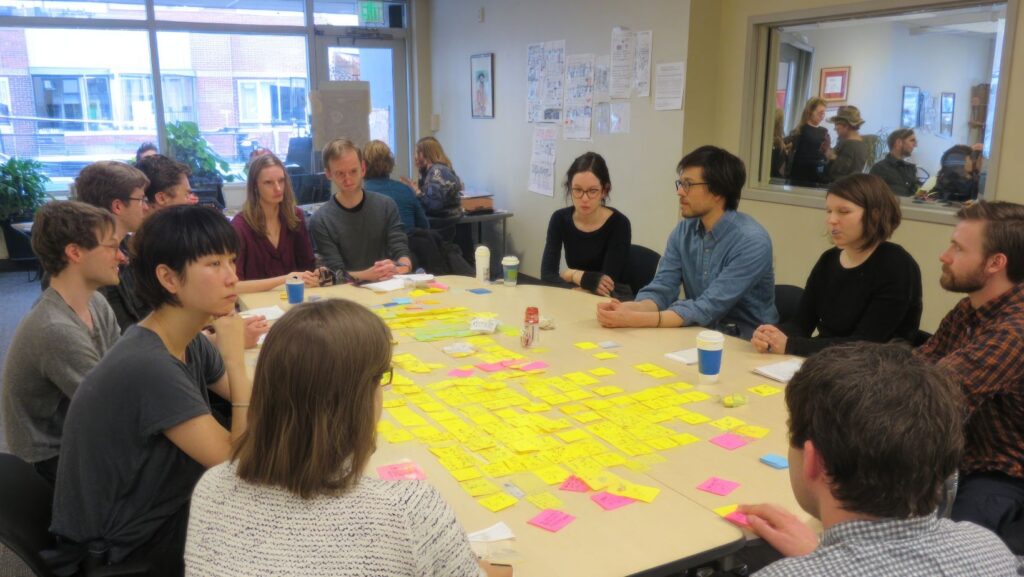In today’s competitive landscape, companies must recognise that employee experience (EX) is just as crucial as customer experience. Organisations that prioritise their workforce not only see lower turnover rates but also higher levels of engagement and productivity. Understanding what sets these companies apart can offer invaluable insights for organisations looking to enhance their own employee experience. Here are six lessons gleaned from companies that truly excel in this area.
1. Prioritise Communication
Effective communication is at the heart of an outstanding employee experience. Companies like Google and Salesforce have implemented open feedback loops that encourage dialogue at all levels. Regular check-ins and transparent communication channels foster a sense of belonging and trust among staff.
For instance, Google employs a radical transparency approach, where employees are encouraged to voice their opinions and concerns openly. This commitment not only enables better decision-making but also instils a culture of trust.
Actionable Tip: Implement regular one-on-ones between managers and team members to encourage feedback and open discussions about challenges and successes.
2. Invest in Professional Development
Companies that take the time to invest in their employees’ growth often reap the rewards. LinkedIn stands out for offering comprehensive learning resources through its LinkedIn Learning platform. This commitment to ongoing professional development not only helps employees acquire new skills but also enhances their value to the organisation.
Moreover, companies that promote from within often see higher employee morale. When employees feel their career paths are nurtured, it cultivates loyalty and a commitment to the organisation’s success.
Actionable Tip: Create personalised development plans for employees, inclusive of training opportunities and mentorship programs that align with their career aspirations.
3. Encourage Work-Life Balance
Employee wellbeing is not a mere buzzword; it’s a foundational aspect of employee experience. Companies like Slack have made headlines for their initiatives promoting work-life balance. With remote-first policies and flexible working hours, Slack empowers employees to design their work life in a way that promotes both productivity and personal wellbeing.

In a recent interview, Slack’s leadership noted that they actively discourage overwork. This approach not only retains talent but cultivates a culture where employees feel valued and respected.
Actionable Tip: Implement flexible work arrangements and encourage employees to unplug after hours to support mental health.
4. Foster Inclusivity and Diversity
An inclusive workplace is a thriving workplace. Companies that excel at employee experience often prioritise diversity in their hiring and retention strategies. For example, Unilever has set ambitious goals to improve diversity among their workforce, which has led to extensive benefits, including a richer range of ideas and perspectives.
Inclusivity goes beyond simply hiring from diverse pools; it’s about creating an environment where all employees feel valued and engaged. This can be seen in organisations that host regular training on unconscious bias and create employee resource groups that celebrate various backgrounds.
Actionable Tip: Assess your hiring practices and consider establishing diversity training programmes that educate employees and promote an inclusive culture.
5. Utilise Technology Wisely
The right tools can significantly enhance employee experience. Companies that provide effective technology solutions streamline workflows and minimise frustrations associated with outdated systems. For instance, Adobe has embraced comprehensive digital solutions that allow employees to work efficiently, whether they are remote or in the office.
Engagement platforms that facilitate employee feedback, recognition, and peer interactions can greatly enhance the sense of community within an organisation. Here, the scarlettabbott website demonstrates how strategic communication and engagement can transform workplace culture, offering consultancy services that can guide companies in refining their employee experience strategies.
Actionable Tip: Evaluate the technology currently in use and consider upgrading to solutions that enhance collaboration and streamline operations.
6. Recognise and Celebrate Achievements
Celebrating success, whether big or small, plays a critical role in employee experience. Recognising the hard work and accomplishments of employees boosts morale and motivation. Companies such as Zappos have mastered this concept by celebrating milestones and encouraging team members to acknowledge each other’s contributions publicly.
A culture of recognition not only increases engagement but can also improve retention rates. Employees who feel valued and acknowledged are significantly more likely to remain loyal to the company.
Actionable Tip: Implement a formal recognition programme whereby achievements are celebrated in team meetings or through company-wide communications. This could be as simple as shout-outs in newsletters or rewards for outstanding performance.
Conclusion
Creating an exceptional employee experience requires intention, strategy, and adaptability. By focusing on communication, professional development, work-life balance, inclusivity, technology, and recognition, organisations can cultivate an environment where employees thrive. The businesses leading the way in employee experience offer us valuable lessons that can transform workplaces into engaging, vibrant communities.
As companies continue to navigate the complexities of modern work, prioritising employee experience will not only be a differentiator but an essential strategic imperative for long-term success. Adopting these lessons can pave the way for a future where both employees and employers flourish.


